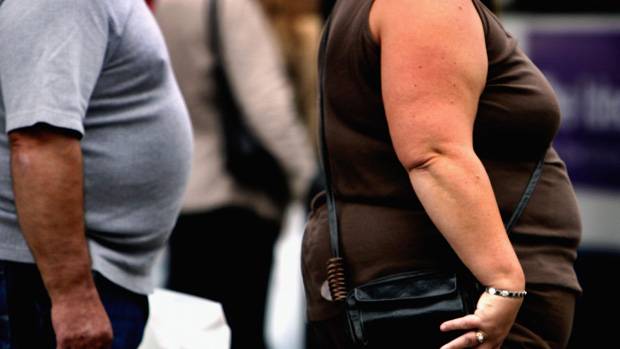Dust bunnies and 4 other things that (might) make you fat
If you want to shed pounds, think about turning down the thermostat or getting an early night

A free daily email with the biggest news stories of the day – and the best features from TheWeek.com
You are now subscribed
Your newsletter sign-up was successful
"Eating dust" might conjure up visions of a desperate attempt to get thin, but consuming household dust can actually prompt your body to gain fat, according to new scientific research.
The study, led by North Carolina's Duke University, looked at the effects of inhaling endocrine-disrupting chemicals, which come from synthetic materials used in many household items and can be carried by dust particles.
Researchers found that all but one of the 11 dust samples given to lab mice either caused precursor fat cells to mature and grow or prompted them to divide in two, doubling the number of them.
The Week
Escape your echo chamber. Get the facts behind the news, plus analysis from multiple perspectives.

Sign up for The Week's Free Newsletters
From our morning news briefing to a weekly Good News Newsletter, get the best of The Week delivered directly to your inbox.
From our morning news briefing to a weekly Good News Newsletter, get the best of The Week delivered directly to your inbox.
EDCs have already been linked to a range of other health problems, but the Duke study is the first to show the chemicals directly causing cells to accumulate more fat.
But don't rush to trade your salads and sweatbands for a feather duster. "Poor diet and a lack of physical activity" are still the "major contributors" to the global obesity crisis, says Science Daily.
Here are four other surprising factors which have been linked to weight gain:
Being a night owl
A free daily email with the biggest news stories of the day – and the best features from TheWeek.com
A 2011 study by Northwestern University found that people who go to bed late and get up late weigh more on average than their early-to-bed, early-to-rise counterparts.
Some kind of karmic retribution for treating yourself to a lie-in? In reality, scientists suspect that late-night snacking may be to blame, as people who stay up late tend to consume an average of 248 calories more than those who go to bed early.
Timing of meals may also play a part, according to the study's senior author, Professor Phyllis Zee: "When the sun goes down you are supposed to be sleeping, not eating," Zee said. "When sleep and eating are not aligned with the body's internal clock, it can lead to changes in appetite and metabolism, which could lead to weight gain."
Central heating
Excess fat may be the scourge of dieters everywhere, but one type of fat can actually help you shed weight. Unlike white fat, which stores calories, brown fat "works like a furnace, consuming calories", says Readers' Digest.
The downside is that brown fat is only triggered to start burning calories when the body needs extra warmth. Since the advent of central heating, the room temperature of the average home has steadily crept up, meaning we use less and less of our body's own resources to keep warm.
University College London epidemiologist Fiona Johnson, who has studied the connection between obesity and room temperature, told the Daily Mail that an overheated house could be a "significant lifestyle factor" when it comes to weight gain.
Not getting enough sleep
Sleep deprivation can interfere with the brain's endocannabinoid system, which regulates our appetite and motivation - and that puts dieters in a double-bind.
Dr Erin Hanlon, one of the authors of a University of Chicago study into the correlation, explained that being tired makes you more prone to craving a snack and more likely to give in to the temptation.
"If you're sleep deprived, your hedonic drive for certain foods gets stronger, and your ability to resist them may be impaired, so you are more likely to eat it," she said. "Do that again and again, and you pack on the pounds."
Travelling on business
Frequent business travel often means calorie-dense restaurant meals or eating on the road, where healthy options may be limited.
And while service station pasties, indulgent room service meals or boozy nights on the company credit card might not matter when it's limited to the occasional jaunt, a travel-heavy lifestyle is associated with below average health and obesity.
Although those who travel occasionally for work reported better health than those who never do, people who spend the majority of their working life on the road were in the worst shape of all, according to research published in the Journal of Occupational and Environmental Medicine in 2011. Those who spent at least 14 nights a month travelling on work business averaged a higher body mass index and poorer performance on clinical tests.